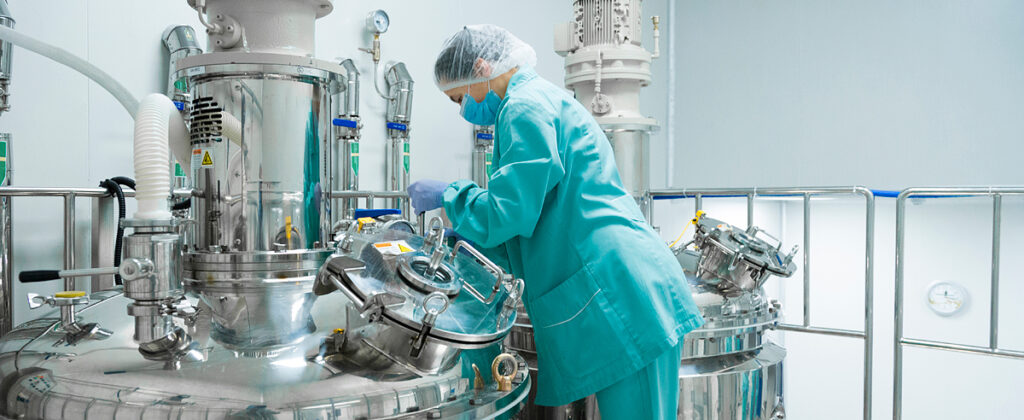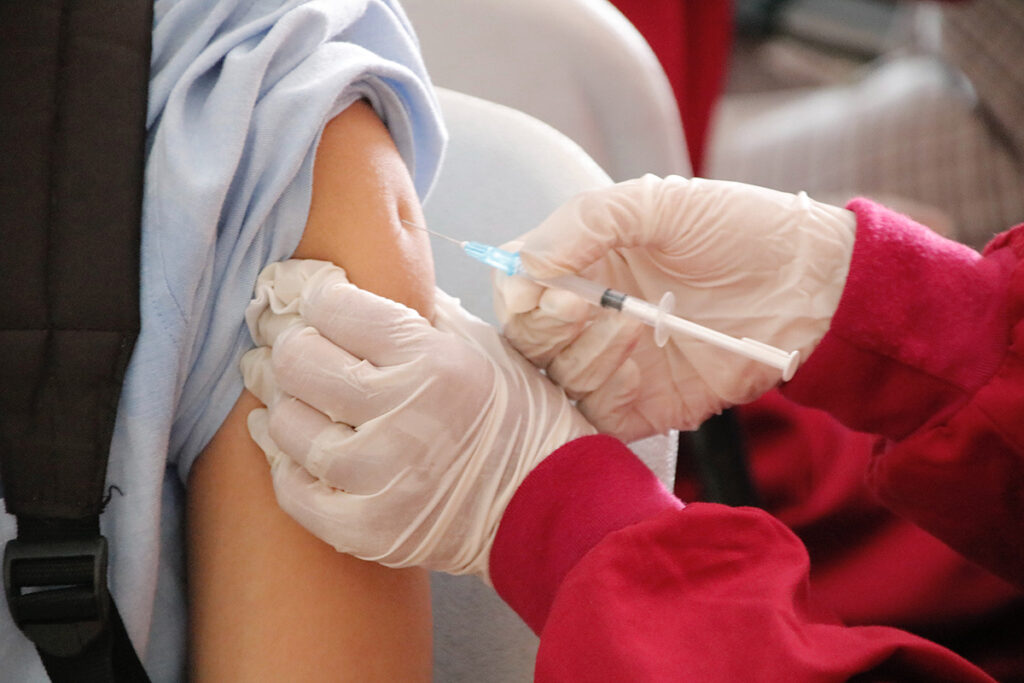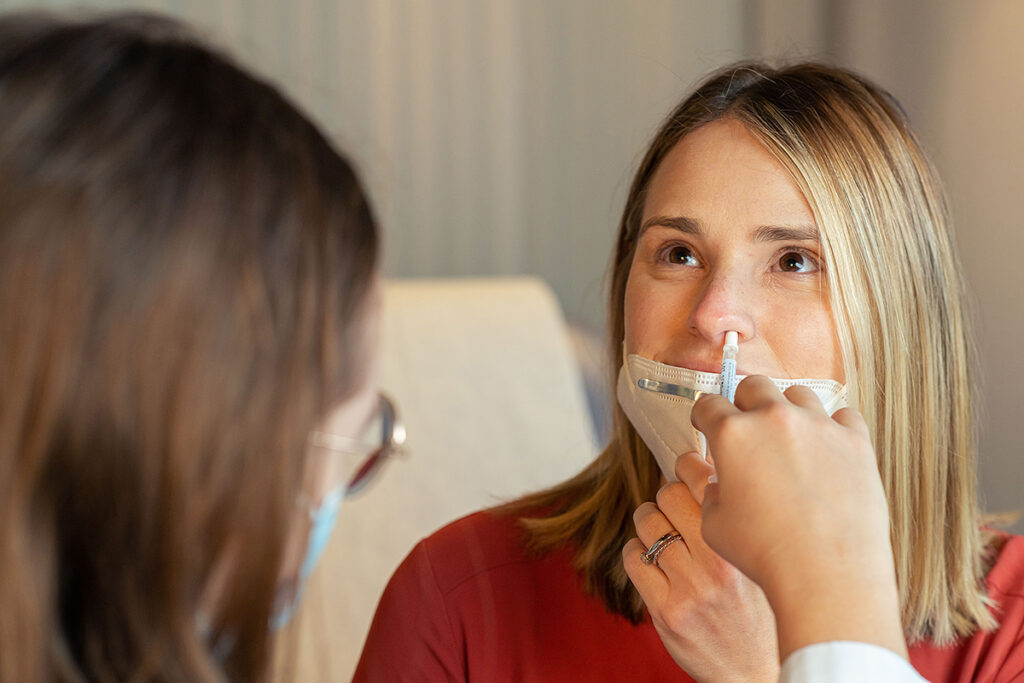In clinical trials, Pfizer-BioNTech and Moderna vaccines effectively prevented moderate to severe COVID-19. However, all tests were conducted in healthy people, while patients with autoimmune diseases were not included in vaccine trials.
Among these patients are patients with multiple sclerosis. In multiple sclerosis, the immune system attacks the myelin sheath of nerve fibers in the brain and spinal cord. It decreases information processing speed, impaired coordination, attention and memory, and disability in severe cases. In multiple sclerosis, B lymphocytes synthesize antibodies to myelin, and an inflammatory reaction destroys the myelin sheath of nerve fibers. One of the treatments for multiple sclerosis is by administering a drug that depletes B cells.
Patients with multiple sclerosis receive injections of aCD20, an antibody to the CD20 protein on the surface of B cells, every six months. Since B cells are depleted during this process, they cannot produce sufficient antibodies in response to vaccination.
Scientists from the Perelman School of Medicine at the University of Pennsylvania in the United States investigated how effective vaccination against coronavirus is in multiple sclerosis. The study involved 20 patients with multiple sclerosis treated with aCD20. The control group consisted of 10 healthy people. All MS patients and healthy individuals had no previous clinical signs or symptoms of COVID-19.
How Antibodies are Produced in Response to The SARS-Cov-2 Vaccine in Healthy People and Patients with Multiple Sclerosis
After the first dose of the mRNA vaccine, all healthy participants developed IgG antibodies to both the spike protein (anti-spike) and the receptor-binding domain – the structure at the end of the spike protein by which the virus binds to the ACE2 receptor and enters the cell (anti-RBD). Antibody levels increased after the second dose of the vaccine.
In contrast, detectable antibody responses varied in multiple sclerosis patients treated with aCD20: 89% developed anti-spike IgG, and only 50% developed anti-RBD IgG. Antibody levels were reduced, and IgG production was inhibited compared to healthy controls.
Antibody to spike protein and RBD increased as the time elapsed since the last injection of aCD20. That occurred due to the restoration of B cells after administration of aCD20. With higher circulating B-cell counts before vaccination, multiple sclerosis patients had more robust anti-spike and anti-RBD IgG responses. A small number of multiple sclerosis patients in whom the frequency of circulating B cells was comparable to a healthy control group achieved equivalent antibody titers after vaccination. Thus, with an increase in the time after the last administration of aCD20, the level of circulating B cells was restored, and the antibody responses to vaccination approached those observed in healthy people.
T cell response to coronavirus vaccine in healthy individuals and patients with multiple sclerosis
Cellular immunity is provided by T-helpers (CD4) and T-killers (CD8). In COVID-19, CD4 and CD8 T cell responses are associated with milder disease. Resistant CD8 T cell responses are associated with improved survival in COVID-19 patients who receive B cell depletion therapy. These data indicate that T cells can provide protective immunity and reduce disease severity when there is no antibody response “Immunological memory for SARS-CoV-2. Five components of the immune response“. In addition, T cells can recognize new strains of SARS-CoV-2, which are less well neutralized by antibodies “T Cell Response to Vaccination Protects Against New Strains of Coronavirus“.
Despite attenuated antibody responses, multiple sclerosis patients treated with aCD20 generated sustained antigen-specific CD4 T cell responses to both vaccine doses. CD4 T cell responses in patients with multiple sclerosis were comparable to those in healthy individuals.
Compared to healthy people, CD8 T cell responses after the second dose of the vaccine were more potent and more robust in multiple sclerosis patients treated with aCD20.
Conclusions
Although most patients with multiple sclerosis treated with aCD20 showed antibodies to the spike protein and 50% – antibodies to RBD, antibody production was slowed down, antibody titers were decreased, and antibodies had a reduced neutralizing activity compared to healthy controls. Antibodies were better developed if more time had elapsed since the last injection of aCD20.
Despite the poor antibody response in most multiple sclerosis patients treated with aCD20, all of these patients generated robust CD4 and CD8 T cell responses to SARS-CoV-2 vaccination, with a more robust CD8 T cell response than healthy individuals.
Vaccination could protect multiple sclerosis patients from severe COVID-19, especially since T cells can recognize new strains of coronavirus that have escaped neutralization with antibodies. For multiple sclerosis, vaccination is best done several months after the last dose of a B-cell depleting drug.
Useful article, necessary information? Share it!
Someone will also find it useful and necessary:



